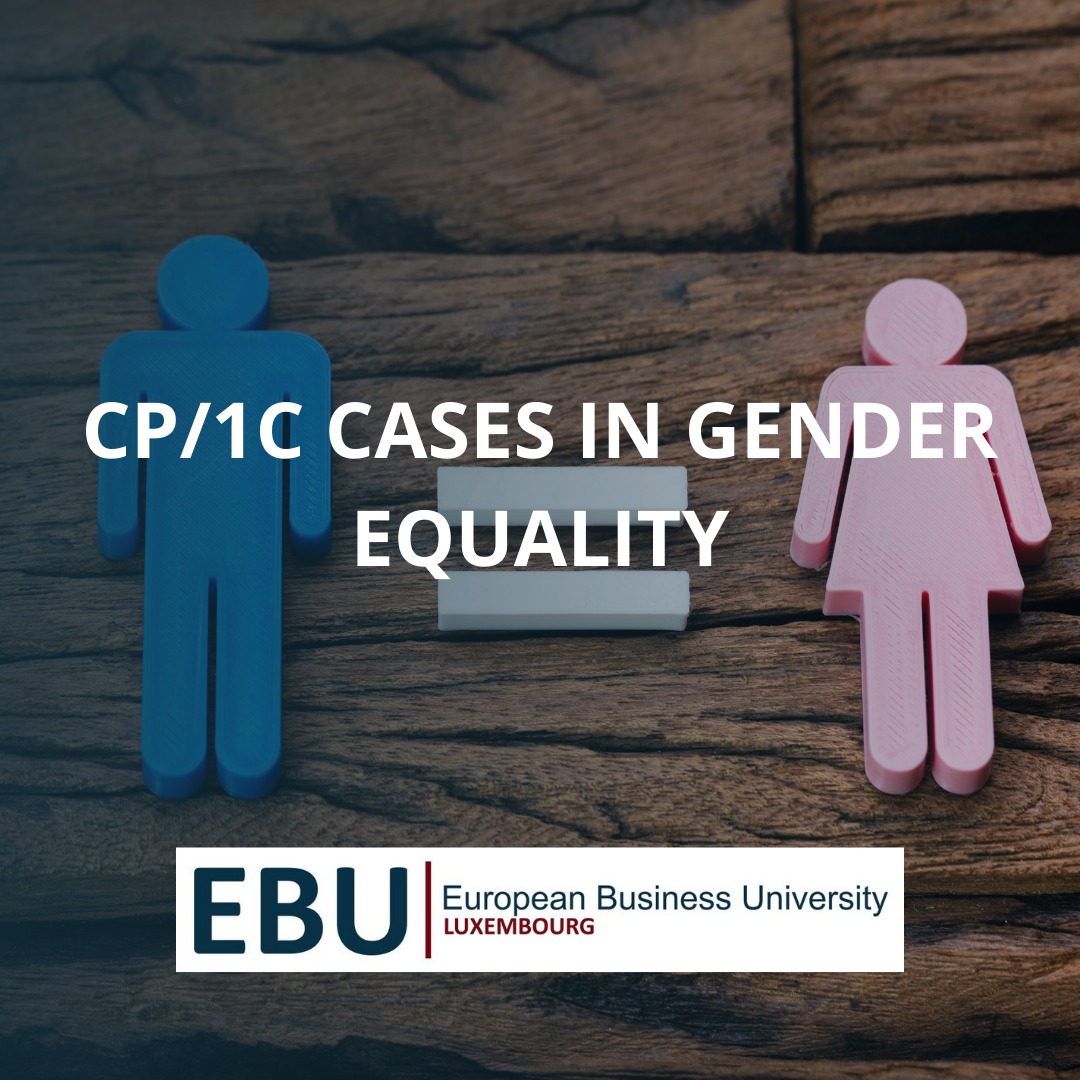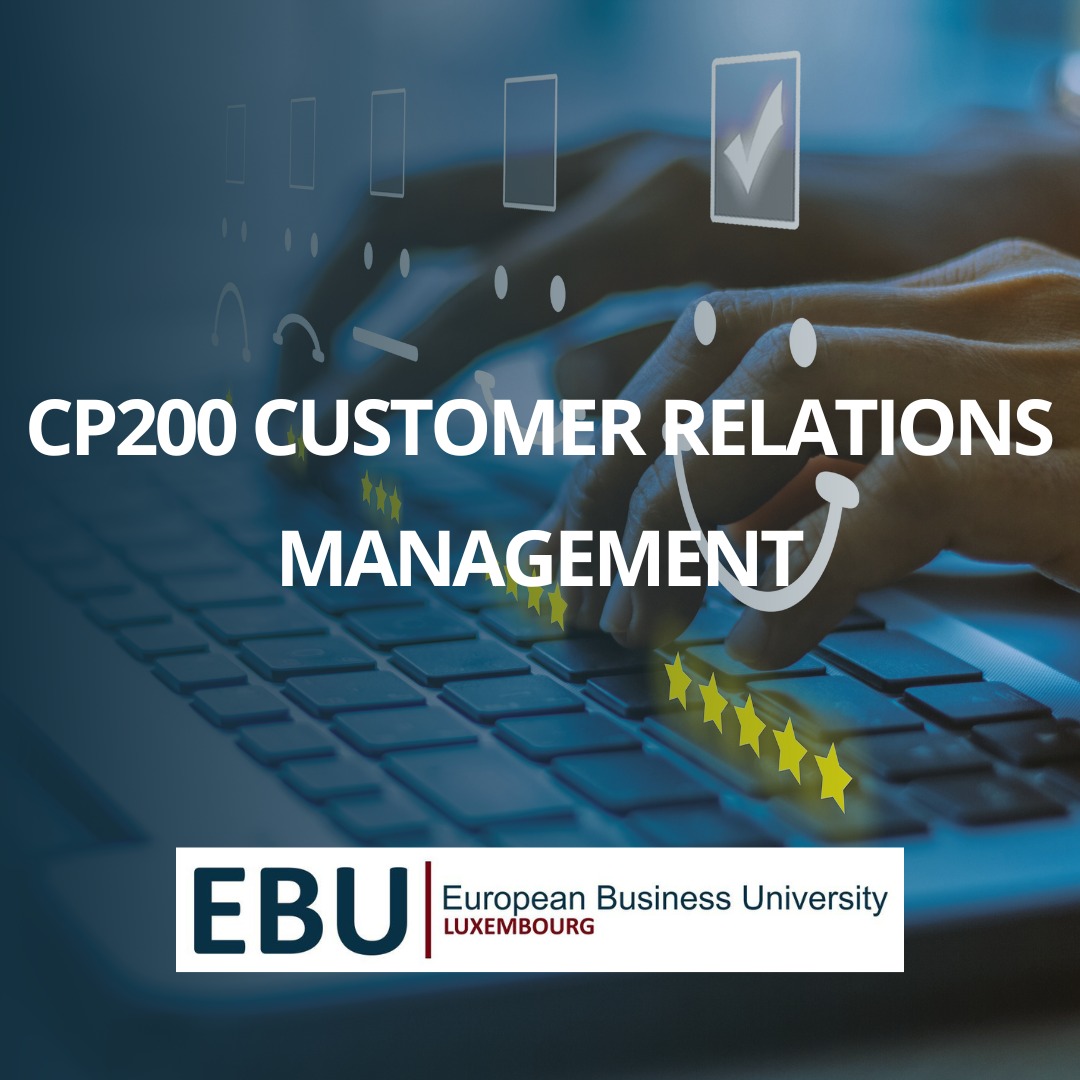
This course provides a survey of the business world. Students will achieve an understanding of the basic principles and practices of contemporary business. Upon completion, students should be able to demonstrate an understanding of business concepts as a foundation for studying other business subjects. The course covers the following topics: The Environment of Business; Business Ownership and Entrepreneurship; Management and Organization; Human Resources; Marketing; Finance and Investment.
- Enseignant: Dr. Nicholas Boehnlein

- Enseignant: Linda Saadaoui

The objective of this course is to endow the student with a broad perspective on themes and issues of Human Resource Management along with their relevance and application. It will help the students to build up and refine decision making skills so that they can help organizations effectively conduct personnel management and employee relations.
- Enseignant: Poonam Chawla
- Enseignant: Georg Peitchev

NOTE: Prior Programming Experience is Recommended eg. Python, Java, C++
You MUST have a computer when taking the course.
Students will develop their functional programming skills in the languages Haskell and Plutus. This will help make them competent smart contract programmers; adept at changing the world through the creation of new systems and decentralised applications in the Cardano Ecosystem. The course opens a door of opportunity to work in the early development of Cardano; the fastest growing Cryptocurrency. Which aims to bank the unbanked and create new financial systems for emerging world markets.
The course will teach you the core principles of how to code in both Haskell and Plutus. Modules will cover the building blocks of Haskell and Plutus, including functions and data types, type classes, monads, template Haskell, using the Plutus Playground, The Marlowe Playground, the Extended UTXO model, working with Plutus on and off the chain, minting policies, state machines, the Plutus application framework, as well as case studies and practical exercises.
Prerequisites: While you do not need to be an expert in formal methods, programming experience and a general aptitude for logical and mathematical thinking are highly desirable.
PS: Taking the Plutus/Haskell course leads to potential internships through being connected with companies to develop smart contracts.
- Enseignant: Ernest Musyoki
- Enseignant: Raphael Rotondari

The objective of this course is to identify and demonstrate the nature and importance of female leadership. This course will start with discussions on various leadership theories as well as the leadership development, success of female leaders and what it means when a leader needs to be a good follower. This class will host 5 female guest speakers coming from various leadership backgrounds. The students will explore the character, personal attributes, and behaviours of effective female leaders.
- Enseignant: Bella Omino

This course offers an introduction to Women's and Gender Studies, an interdisciplinary academic field that explores critical questions about the meaning of gender in society. The primary goal of this course is to familiarize students with key issues, questions and debates in Women's and Gender Studies scholarship, both historical and contemporary. Gender scholarship critically analyzes themes of gendered performance and power in a range of social spheres, such as law, culture, education, work, medicine, social policy and the family.
- Enseignant: Njeri Mwangi

This course examines customer relationship management (CRM) and its application in marketing, sales, and
service. Effective CRM strategies help companies align business processes with customer-centric strategies
using people, technology, and knowledge. Companies strive to use CRM to optimize the identification,
acquisition, growth and retention of desired customers to gain a competitive advantage and maximize profit.
Anyone interested in working with customers and CRM technology and who would like to be responsible for the
development of any major aspect of CRM will find this course beneficial.
- Enseignant: Julija Trosic

- Enseignant: Florjana Lleshi

Pre-requisites:
- Prior Programming Experience is Recommended eg. Python, Java, C++
- CP108 Plutus/Haskell course recommended
NOTE: You MUST have a computer when taking the course.
This course is concerned with the development of applications on mobile and wireless computing platforms. Android will be used as a basis for teaching programming techniques and design patterns related to the development of standalone applications and mobile portals to enterprise and commerce systems. Emphasis is placed on the processes, tools and frameworks required to develop applications for current and emerging mobile computing devices. Students will
work at all stages of the software development life-cycle from inception through to implementation and testing. In doing so, students will be required to consider the impact of user characteristics, device capabilities, networking infrastructure and
deployment environment, in order to develop software capable of meeting the requirements of stakeholders. Upon completion, students should be able to create basic applications for mobile devices.
- Enseignant: Timothy Owen

The essence of this course is to learn the basic concepts and principles of sustainability science, and how sustainability is or can be integrated into business. On the one hand, environmental challenges including climate, waste, energy, agriculture, and biodiversity, as well as their drivers will be touched upon. The course then explores how environmental problems are closely related to social aspects. Thereafter, the integration of sustainability in business will be analyzed. Various approaches and tools that companies can use to integrate sustainability in their business practices, such as circular economy principles and design thinking, will be discussed.
- Enseignant: Carla Mulli
- Enseignant: Dr. James Mulli
